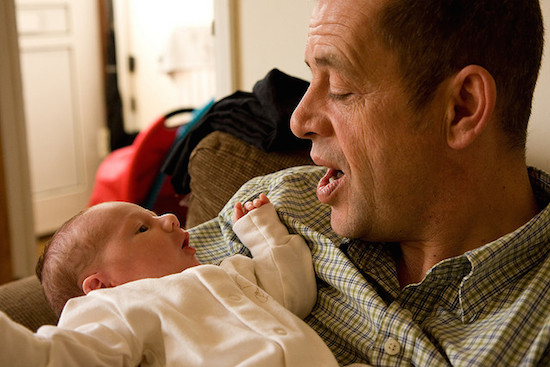Health Watch: Tapping into the Power of Music
Today we tend to value music for its esthetic and entertainment value, but it’s much more than that. In recent decades therapists have been exploring the deeper cultural and psychological meanings of music, tapping into it for another dimension of healing. Music can speak both to our mind and our gut, transporting us to a place far off in time, bringing together a group or tapping into deep emotional layers.
A parent who has walked the floor singing to a crying infant knows that music can calm the child and produce a relaxed mood, ready for sleep. When premature infants were exposed to music, they were calmer, ate more, gained more weight and were released from the neonatal unit earlier than pre-term infants who did not receive the therapy. As children grow and develop, music provides the soundtrack to countless games and learning experiences–from the ABCs to more complex mnemonic devices.
Music therapists often work in schools, providing both group and individual therapy to students who may have special needs or dealing with anger issues or other challenges. Many students respond positively to group drumming sessions where they can tap into primal rhythms to express deep-seated emotions that may be difficult to verbalize.
Music therapy has been widely studied and is often used as a supplemental treatment for cancer patients. Music can’t cure cancer, but it can relieve anxiety, help with pain management, increase the patient’s sense of control and, perhaps as a result of the increase in psychological well-being, boost the patient’s immune response.
When working with a music therapist, patients have a high degree of control. They choose the music they work with and, after initially working with the therapist, can return to the music at any time. Music therapy also offers them the chance to re-enter the parts of their lives that are not connected to their illness.
One study of 45 private hospital patients who had suffered a heart attack measured the effects of music therapy on both physical and emotional symptoms. Patients were fitted with Holter monitors to record baseline measures of heart rate, blood pressure and respiratory rate. After listening to relaxing music, the patients had lower heart and respiratory rates, lower oxygen demand as well as a reduction in anxiety.
Taking advantage of the strong effect music exerts on mood, therapists have used the calming power of music to treat those suffering from depression, anxiety and other mood disorders. There is also evidence that music therapy may increase the response to antidepressant medication. Older adults suffering from Alzheimer’s or other dementias, respond to music with lower levels of anxiety and aggression and improvements in mood, dementia, cooperation and interaction.
For those with Alzheimer’s, familiar songs or music can unlock past memories which might otherwise be inaccessible. In addition to using music therapists, most senior centers and nursing homes hold regular sing-alongs for their residents, giving them the opportunity to make music as well as bonding with their peers in a social setting, all the while tapping into a rich treasure trove of memories.
Much of the power of music, from a therapeutic perspective, is that it provides a channel for accessing emotions. For many people it can be difficult to express feelings verbally, especially when strong emotions are involved. And sometimes it’s difficult to even access deep-seated feelings. Music is often able to open up that path, allowing us to explore both joyful and difficult memories from the past. The beauty of music therapy is that it has universal applications. It works for the very young and the very old and for everyone in between.
